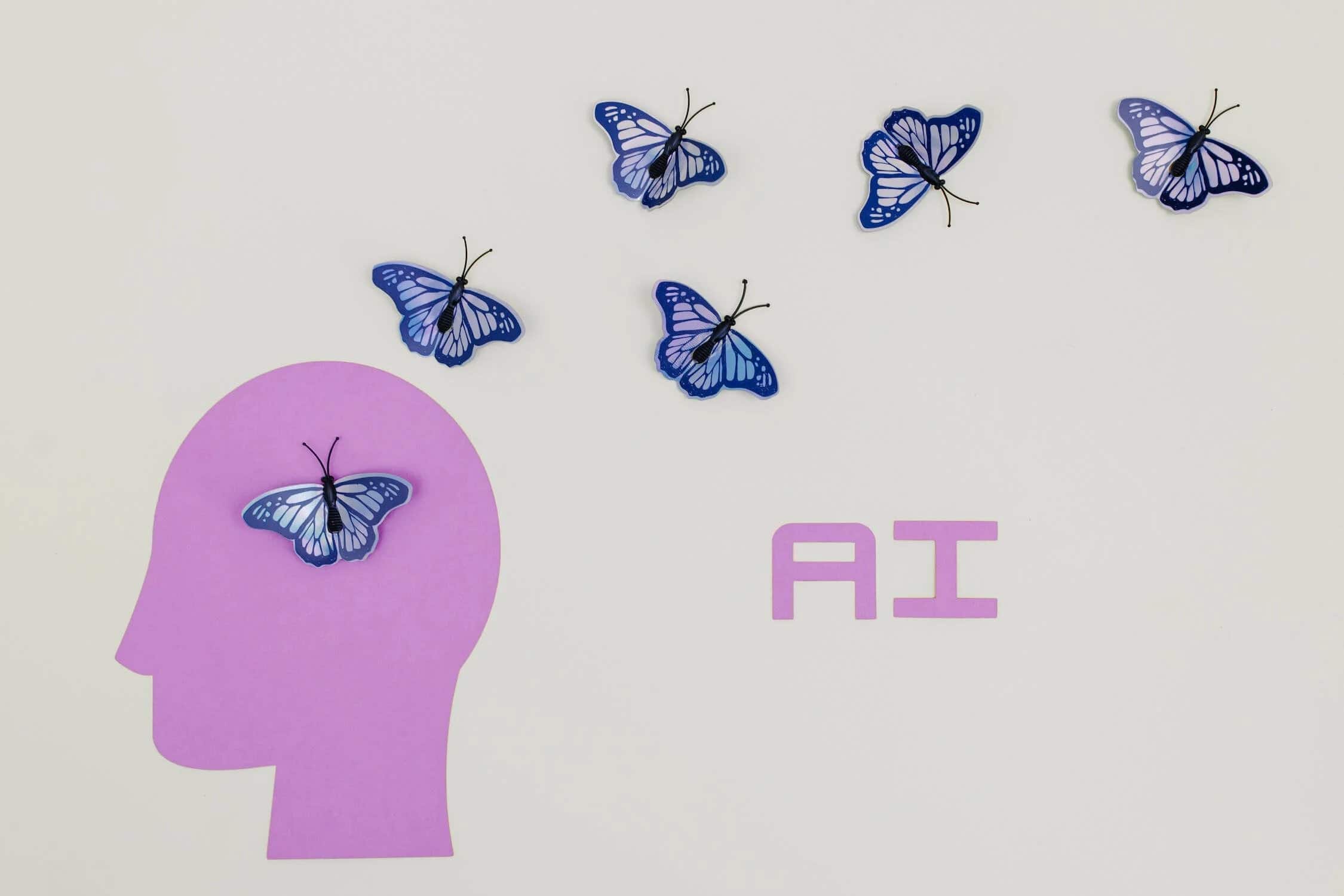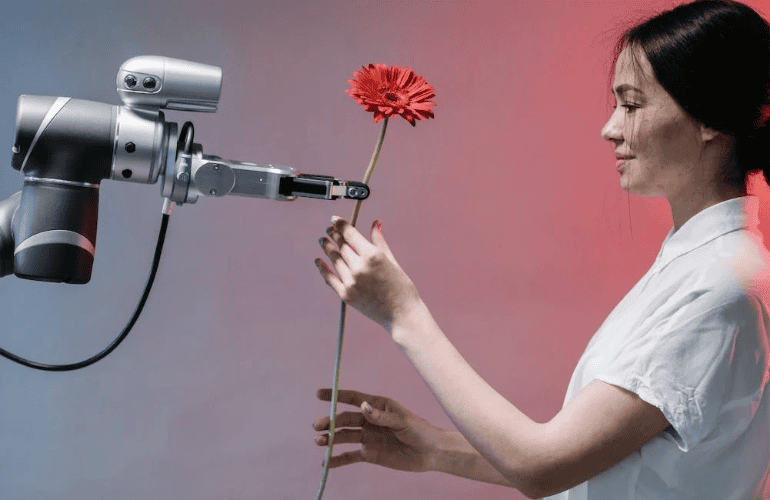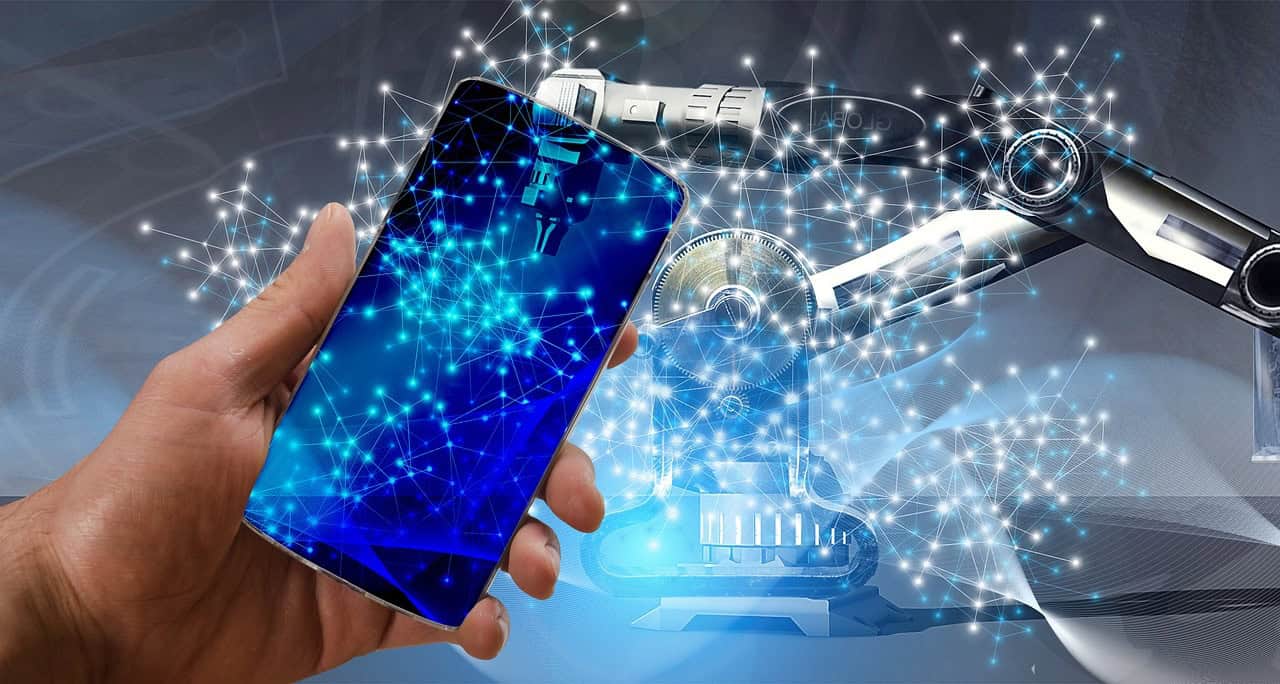The Role of Artificial Intelligence in Personalizing Web Experiences

Personalizing web experiences has become the linchpin of online success in today’s digital age. Whether you’re an established trailblazer or just starting your business, it’s all about tailoring a website’s content and services to each visitor’s unique preferences and needs.
Why is this so crucial, you ask? Well, think about it this way: When you land on a website that feels like it was made just for you, it’s like a warm welcome from an old friend. You’re more likely to stay, explore, and engage. That’s where Artificial Intelligence, or AI, steps into the spotlight. The digital wizard analyzes your behavior, sifts through data, and conjures up recommendations, making your online journey smoother and more enjoyable.
In this post, we’ll dive deeper into the world of personalizing web experiences with AI, exploring its incredible benefits and how it’s shaping the internet as we know it. So, let’s embark on this journey to uncover the secrets of AI-powered personalization and how it’s transforming how we surf the web.

AI is already personalizing web experiences for the better in various ways.
The Benefits of Personalized Web Experiences
As a brief introduction, it may seem like web experience personalization isn’t a big deal. After all, we’ve been doing fine without it, so why is it so essential?
Well, let’s break it down:
- Better website trust flow: When a website understands your preferences and serves content that resonates with you, it feels like a reliable friend. Alongside smooth navigation, SEO, and other established best practices, this can help make your site trustworthy, encouraging visitors to return and improving your trust
- Improved user satisfaction: Personalization means you find what you’re looking for faster and with less effort. This delightful user experience leaves a positive impression, making users happier and more likely to stay and explore further.
- Improved user engagement: Personalized content captures your attention because it’s relevant and interesting. It keeps you engaged, clicking through pages, reading articles, and interacting with the site.
- Increased conversion rates: You’re more likely to purchase when a website suggests products or services tailored to your interests. That boosts conversion rates, turning casual visitors into loyal customers.
- Customer loyalty: Personalizing web experiences doesn’t stop at the first visit. It continues to learn from your interactions, providing even more accurate recommendations. That deepens the connection between users and the website, fostering long-term loyalty.
So, in essence, web experience personalization creates a win-win situation. Users get content and products they love, while businesses enjoy the above perks. It’s a digital strategy that benefits everyone involved.
Personalizing Web Experiences with AI
So, we’ve hopefully established the sheer value of web personalization. By now, since we’re experiencing what’s likely AI’s biggest boom yet, you probably already know just how vast AI’s capabilities are.
But how do the two connect? That is what we’re here to answer.

It’s easy to miss how AI personalizes web experiences, but it’s hard to overstate its importance.
#1 Content Recommendations
First, AI can serve tailored content recommendations like a knowledgeable librarian suggesting books you’d love. AI algorithms analyze your online behavior, noting what you’ve clicked, liked, or spent time on. Then, it sifts through a vast ocean of content to find gems that match your preferences. And if you’re using CRM to analyze your website traffic and feed it data, then all the better.
Think of YouTube recommending videos or Netflix suggesting movies based on what you’ve watched before. These platforms already use AI to track your interactions and offer you an array of content likely to capture your interest. Whether into cooking, gaming, or gardening, AI fine-tunes your web journey by delivering spot-on content, keeping you engaged and satisfied. It’s like having a personal tour guide through the vast landscape of the internet, making for an ever more delightful adventure.
#2 Tailored Shopping Experiences
Second, AI is also already a game-changer in personalizing web experiences in e-commerce. It’s like having a personal shopper who knows your style inside out. How does it work? AI examines your past shopping habits, the products you’ve browsed, and the items you’ve added to your cart. Then, it cleverly suggests products that align with your tastes, making your online shopping experience feel tailored just for you.
Consider Amazon’s product recommendations or those personalized fashion finds on clothing websites. This smart personalization helps you discover items you might have missed and increases the likelihood of finding something you genuinely love. It’s a win-win scenario – customers find what they want effortlessly, and e-commerce platforms boost sales and customer satisfaction.

AI has seen ample use in eCommerce websites for years and keeps improving for mutual benefit.
#3 Chatbots and Virtual Assistants
If the above seemed obvious, how about AI-driven chatbots and virtual assistants? You may have already encountered those, too – and studies show they’re increasingly efficient at their role.
Indeed, these smart bots keep improving by analyzing your inquiries and interactions to understand your needs better. For instance, think about the chatbot on your favorite online store. It can help you find products, track orders, or suggest gift ideas based on previous purchases. These interactions are like having a helpful store associate who knows exactly what you’re looking for, providing quick and precise answers.
Moreover, chatbots continuously learn from user interactions, adapting and improving their responses. They make personalizing web experiences a breeze, ensuring users receive the support and guidance they need, whether troubleshooting a tech issue or planning a vacation. If microinteractions boost UX, imagine what 24/7 virtual support and assistance can do for the customer experience.
#4 Dynamic Website Personalization
Lastly, AI empowers dynamic website personalization, turning websites into chameleons that adapt to your preferences in real-time. Imagine a website that changes its content like a shape-shifter, all thanks to AI. It analyzes your behavior as you browse, tracking what you click on, how long you stay, and what catches your eye. Then, it adjusts what you see on the fly. If you’re into sports, the homepage might highlight the latest game scores and sports news, while someone interested in fashion sees trendy clothing collections.
The benefits are immense. Dynamic personalization keeps you engaged, makes you feel valued as a user, and ultimately leads to higher satisfaction. For e-commerce, it can mean showing you a special deal on a product you’ve been eyeing, or news websites might display articles related to your interests front and center. The result? A web experience that’s uniquely yours, as AI personalizes content in real-time, making every click count and personalizing web experiences like never before.

Dynamic personalization once sounded like science fiction, but AI is making it a reality.
Conclusion
As you can see, the role of AI in personalizing web experiences cannot be overstated. It’s already the digital magician behind the curtain, tirelessly working to make your online adventures more enjoyable and efficient. It transforms websites into personalized havens, ensuring that what you see and interact with is what you desire. And over time, amid this AI boom, it only seems set to continue on this beneficial course.
So, if you’re a website owner looking to improve your business’s online experiences, AI may offer just the tools you need. From content and shopping recommendations to chatbots and dynamic website personalization, it can help you offer your customers what likely also pleases you as an internet user.
Image sources:
https://www.pexels.com/photo/white-and-blue-butterflies-illustration-8849282/
https://www.pexels.com/photo/a-robot-holding-a-flower-8438979/
https://pixabay.com/photos/laptop-macbook-home-office-2838917/
https://www.pexels.com/photo/push-cart-and-a-white-paperbag-5632402/
https://pixabay.com/illustrations/technology-smartphone-industry-5246655/
